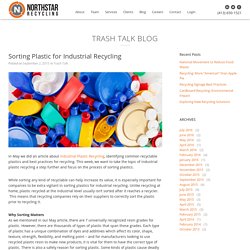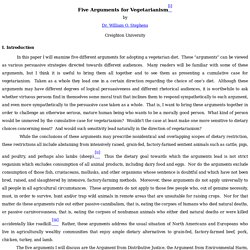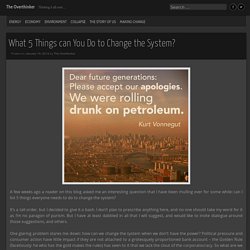

Growing Mushrooms on Your Own Substrate and Container Using Mushroom Garden Kit. Sorting Plastic for Industrial Recycling - Northstar RecyclingNorthstar Recyc... In May we did an article about Industrial Plastic Recycling, identifying common recyclable plastics and best practices for recycling.

This week, we want to take the topic of industrial plastic recycling a step further and focus on the process of sorting plastics. While sorting any kind of recyclable can help increase its value, it is especially important for companies to be extra vigilant in sorting plastics for industrial recycling. Unlike recycling at home, plastic recycled at the industrial level usually isn’t sorted after it reaches a recycler. This means that recycling companies rely on their suppliers to correctly sort the plastic prior to recycling it. Why Sorting MattersAs we mentioned in our May article, there are 7 universally recognized resin grades for plastic. What is the form of your item? Below we’ve also included a rough guide for identifying plastics by resin type (especially for instances where no resin number is included on the item). Fiveargumentsforvegetarianism. Five Arguments for Vegetarianism[i] by Dr.

William O. Stephens I. In this paper I will examine five different arguments for adopting a vegetarian diet. While the conclusions of these arguments may prescribe nonidentical and overlapping scopes of dietary restriction, these restrictions all include abstaining from intensively raised, grain-fed, factory-farmed sentient animals such as cattle, pigs, and poultry, and perhaps also lambs (sheep).
The five arguments I will discuss are the Argument from Distributive Justice, the Argument from Environmental Harm, the Feminist Argument from Sexual Politics, the Argument from Moral Consideration for Animals, and the Prudential Argument from Health. II. A. This first argument was advanced as early as 1971 by Frances Moore Lappé,[v] and has been repeated by such philosophers as Peter Singer,[vi] James Rachels,[vii] Stephen R. 2. 3. 4. 5. 6. 7. 8.
Basically, the idea here is that eating meat perpetuates a system which indirectly harms other human beings. Calculating the Hidden Cost of Industrial Farming. It is nearly impossible to calculate the real costs and benefits—including the externalized or invisible costs—of any human activity: growing soybeans, making car tires, cooking dinner for your family.

When growing soy, for example, it’s easy enough to calculate the total price paid for inputs like fertilizer or pesticides and the price received for the finished crop. But accounting for the total costs and benefits—things like environmental damage from fertilizer runoff, or the social benefits of putting land to productive use—isn’t something we tend to do as a culture.
For example, the true costs of producing a Quarter Pounder with Cheese are borne not only by McDonald’s, but by all of us who have to deal with, among other things, environmental degradation caused by industrial farming and the bad public health outcomes of eating such meals. Nationearth.com. Watch Earthlings Online - FreeDocumentaries.Org. Organic Voices on GMOs. How I gave up processed foods (and why it matters) You are what your grandparents ate: Pamela Peeke at TEDxLowerEastSide. What 5 Things can You Do to Change the System? A few weeks ago a reader on this blog asked me an interesting question that I have been mulling over for some while: can I list 5 things everyone needs to do to change the system?

It’s a tall order, but I decided to give it a bash. I don’t plan to prescribe anything here, and no one should take my word for it as I’m no paragon of purism. But I have at least dabbled in all that I will suggest, and would like to invite dialogue around those suggestions, and others. One glaring problem stares me down: how can we change the system when we don’t have the power? Political pressure and consumer action have little impact if they are not attached to a grotesquely proportioned bank account – the Golden Rule (facetiously: he who has the gold makes the rules) has seen to it that we lack the clout of the corporatocracy. I figured my response should not just be things everyone should do, but things everyone can do – at least to some extent – and can scale up. 1. This comes in a series of steps. 2. 3.